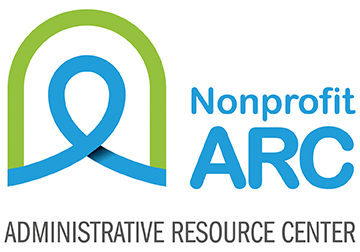
In a recent LinkedIn post, Detroit’s “Gig Economy” was showcased highlighting several freelancers and their experiences. Freelancing is a growing component of our national (and local) economy, fueled in great part by technology and globalization. This creates powerful opportunity, and nowhere is the value proposition for “gigging” more compelling for business than in the nonprofit arena. Several dynamics converge to yield a strong case for considering outsourced talent as a uniquely effective mission-booster. As with any proposition, there are pros and cons to freelancers.
Healthy Skepticism
By and large, the two most commonly cited drawbacks are
- The IRS guidelines distinguishing employees from contractors – There are several factors distinguishing contractors from employees, but the central issue is who has control and how much control they have. If the gig is set up correctly, this is largely a nonissue.
- A written agreement that includes language defining scope is a strong insulator against questions of control.
- The absence of a set schedule also supports the contractor status. This does not preclude the establishment of deadlines – it simply shifts the control of when (and where) the actual work is performed in meeting the deadlines to the contractor.
- Additionally, contracting with an individual who is employed through a separate organization (a PC or LLC, rather than the individual directly) further mitigates the likelihood that a claim of employment would be supportable.
- Lastly, the issue generally arises when an individual actively makes a claim against the organization. Anyone can assert a claim, and being mindful of the relationship and true to the spirit of contracting generally eliminates any risk of a claim being successful.
- The perceived lack of connection to your organization – The idea of someone “from the outside” working in your organization carries the stigma of a lesser-degree of commitment.
- On the surface this would seem to make sense, but consider the turnover challenge that many nonprofits face and you might conclude that this is more perception than fact.
- It is very common for freelancers to become (organically) advocates and supporters, and their independence boosts the credibility, objectivity and reach of their message.
- As noted previously, due diligence and a well-designed engagement document ensures aligned expectations that help build that connection.
The ubiquitous disclaimer – these recommendations are presented as best-practice, but aren’t intended as formal legal advice. If you have doubts, consult an attorney.
If The Shoe Fits
Contractors can be game changers for nonprofits, serving in an important and unique way.
- Contractors can fill unexpected talent gaps. When turnover occurs in key positions, a contractor can serve as a bridge between departing employees and future position-fillers. This process often serves as a “test drive” for both the contractor and the company, and frequently results in a longer-term or permanent relationship.
- Contractors offer a more broadly informed independent perspective in core functional areas. They are able to incorporate learnings from other client environments into best-practice implementation in their current engagements. In this respect, they are insulated from “agency capture,” able to “drink the Kool Aid” without losing the ability to consider alternative approaches to solving problems.
- They are great sounding boards capable of diplomatically and discretely offering opinions that might otherwise lay dormant in response to perceived political risks or misdirected deference.
- They’re flexible, able to course correct quickly and work odd hours as unforeseen needs arise.
- They are highly specialized and simultaneously tied into networks that might not otherwise be known or accessible by the agency. In this context, they also serve as a first line of due diligence, pre-vetting prospective providers and staking their reputation on the quality of the referral.
- They offer a compelling value proposition. Most consultants offer services under several pricing models at hourly, daily and monthly increments with decreasing per-hour rates based on the chunk of time the organization commits to. This affords opportunities to pay market rates but yield significantly enhanced outcomes due to the consultant’s ability to leverage talent and expertise not generally available in an employment relationship. They also don’t get paid for holidays or vacation, and discount fees or issue credits for periods in which they are not working on client assignments.
- They typically have some level of skill redundancy, ensuring continued smooth operations and guarding against the disruption that accompanies unplanned absences and turnover in the employee ranks.
To summarize, sign your first gig! You’ll reap the rewards of a relationship that brings with it some amazing qualities, including but not limited to:
- Independence
- Objectivity
- Expertise
- Nimbleness and
- Continuity
Random Musing
As fate would have it, music is a central part of my life experience, and the mere mention of the word “gig” transports me to the 70’s, with my prepubescent vocal chords still capable of hitting the notes in Pink Floyd’s epic creation “The Great Gig in the Sky.” A fixture on the iconic Dark Side of the Moon, for less familiar fans, it might be hard to place – not as immediately familiar as “Time” or “Us and Them” or “Money,” but equally recognizable once heard. It is the only song on the album with vocals but no lyrics. And the vocals are nothing short of amazing, a demonstration of range that, by rock and roll standards, is virtually incomparable. The gig article elicited the reflections that prompted this post (well, first it elicited a quick streaming of the song, of course). Most relevantly, I thought about the entire process of making music and it struck me that subcontracting – having people sit in, contracting with session players, bringing in experts to fill distinctive creative needs – is the rule versus the exception. Listen to the song – no one in the band could have done anything like what Clare Torry belted out.
Think about this when you’re ready to compose your next masterpiece!
